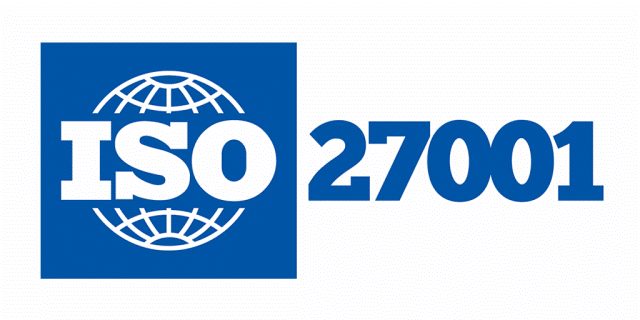Ethereum – an unparagoned altcoin that has kept headlines since its launch
Ethereum, the second largest digital currency by market cap, has been stealing the limelight from the oldest cryptocurrency (Bitcoin) for some time, and after completing the Merge, it looks like it will continue to keep headlines for a while. When Bitcoin entered the market in 2009, it immediately caught the public’s eye. Vitalik Buterin was one of the many who observed its evolution and identified several flaws with the first cryptocurrency. He, therefore, decided to bring on the market an alternative that offers several solutions and launched Ethereum via crowdfunding in 2014.
What is Ethereum?
Ethereum is a decentralized blockchain-based software that gained popularity for its smart contract functionality. It’s an open-source network and has a native cryptocurrency called Ether that runs and fuels the entire ecosystem. People usually use platforms like Binance to buy Ethereum and pay for computational resources and other tasks executed on the network. Similarly, to other digital currencies, Ether is also a peer-to-peer currency that can be used to pay for transactions, buy gas, and make transactions on the Ethereum network.
When users want to deploy contracts on the network, they need gas and therefore have to purchase it with Ether. Gas is the execution fee they pay when completing transactions in the ecosystem. In addition, Ether can also be used to build smart contracts, build decentralized applications, and make peer-to-peer payments.

History of Ethereum
Ethereum is nowadays known as the second-largest blockchain in the sector, but it wasn’t always this valuable. As mentioned earlier, Vitalik Buterin co-created it to provide solutions for users who weren’t happy with Bitcoin’s features. He published the White Paper for the project in 2013 and defined smart contracts as automated immutable if-then statements that powered the creation of decentralized applications. DApps already existed online, but they lacked the interoperability feature. Ethereum was developed to unify DApp platforms and enable them to run and interact. We can say that Ethereum facilitated their broad adoption.
In 2014 Ethereum 1.0 came to life and functioned similarly to an App Store where people could access thousands of applications, all following the same series of rules. The rules are hardcoded into the network and enforced autonomously when developers create DApps within the network. There is no central authority on Ethereum or another blockchain to enforce the regulations; the entire community holds power.
As one can imagine, it’s an expensive endeavor to build such a complex network, and Vitalik Buterin, together with the other Ethereum co-founders (Gavin Wood, Jeffrey Wilcke, Charles Hoskinson, Mihai Alisie, Anthony Di Iorio and Amir Chetrit) had to find funds. They organized a token presale and raised $18,439,086 in Ether, the amount necessary to fund the network’s development. They also started the Ethereum Foundation in Switzerland, which aims to maintain and develop the blockchain. Several co-founders left when Buterin announced that it would function as a nonprofit. However, as the network evolved and proved its utility cases, numerous developers joined it and brought new decentralized ideas. They founded the DAO in 2016, which functions like a group that votes on network proposals and changes in a democratic way. Unfortunately, the organization failed to achieve its goals when a hacker stole $40 million from the DAO’s funds due to a security vulnerability. After the event, the DAO voted to create the hard fork that enabled the old ecosystem’s divergence and upgraded to a new mechanism, leading to a software update that revolutionized the entire blockchain. The original network is now called Ethereum classic, and the new fork functions as Ethereum.
How do people make use of Ethereum?
The Ethereum blockchain is decentralized because its public ledger is stored in several places, on users’ computers located worldwide, each one of them being called a node. More than half of the nodes are required to verify the correctness of the data stored on the blockchain. The ecosystem relies on cryptography to complete, secure, and verify transactions. Ether works similarly to other traditional and digital currencies and can be used to purchase services and products. Ethereum aims to function as a system where people have increased control over their data and develop and run applications on the blockchain. Ether is essential for them to run applications and have any level of control on the platform.
What should we know about smart contracts?
Ethereum introduced the concept of smart contracts that are meant to revolutionize the way traditional contracts function. It’s recommended to research them thoroughly before using them to become familiar with their features. Smart contracts are simple computer programs at their core that enable the exchange of assets between two parties. We use the term asset to refer to property, shares, money, or any digital asset that internet users might want to exchange. All Ethereum users can take advantage of smart contracts, which consist of conditions and terms the parties agree on mutually for the transaction to be completed.
Smart contracts’ main characteristic is that once the exchange is executed, it cannot be altered. All transactions facilitated by smart contracts are immutable and registered permanently on the blockchain. Anonymous parties on the platform verify the smart contracts, as no central authority handles the process. Therefore, all smart contract executions on the Ethereum blockchain are decentralized executions.
Real-world applications of Ethereum
Several investors pick Ethereum for its real-world applications. Several voting systems adopted Ethereum because the results of polls are available to the public and therefore guarantee a transparent and fair process. Banking systems are also more willing to adopt Ethereum and other cryptocurrencies with proven utilities due to their decentralized systems that make it more challenging for hackers to breach. Banking organizations also rely on Ethereum to make payments and remittances.
Ethereum has also been deployed in the shipping sector because it makes tracking cargo easier and prevents goods from being counterfeited or misplaced. The blockchain provides information about the provenance of the cargo and a tracking framework at all points in the supply chain.
What’s more to say?
Ethereum is one of the most ambitious projects in the sector, and its supporters believe it will have a significant impact on the industry.





